What makes an artist? I ask this because I was pondering the question after I had read several bios of fine artists that basically said that “I was drawing at the age of 7 and never looked back”. Then I thought about myself and didn’t see it that way at all. Sure, I had pencils and crayons and the Jon Gnagy drawing set when I was seven but at my present age, I realize that a lot has gone into my development as a “Fine Artist”.
In my life, so far, I have done this: work in a machine shop (summer job), attained BFA from The Cooper Union, graphic designer at CBS and Atlantic records, freelance illustrator, attained San Dan (third degree black belt) in Kyokushin karate, cooking courses at Culinary Institute of America, Chinese cooking courses over several years, rock and jazz drummer from 12 years old (still gigging), became expert in Adobe digital software.
My point is not to list my accomplishments but to make all of you realize yours and how they influenced you as you became the artist you are.
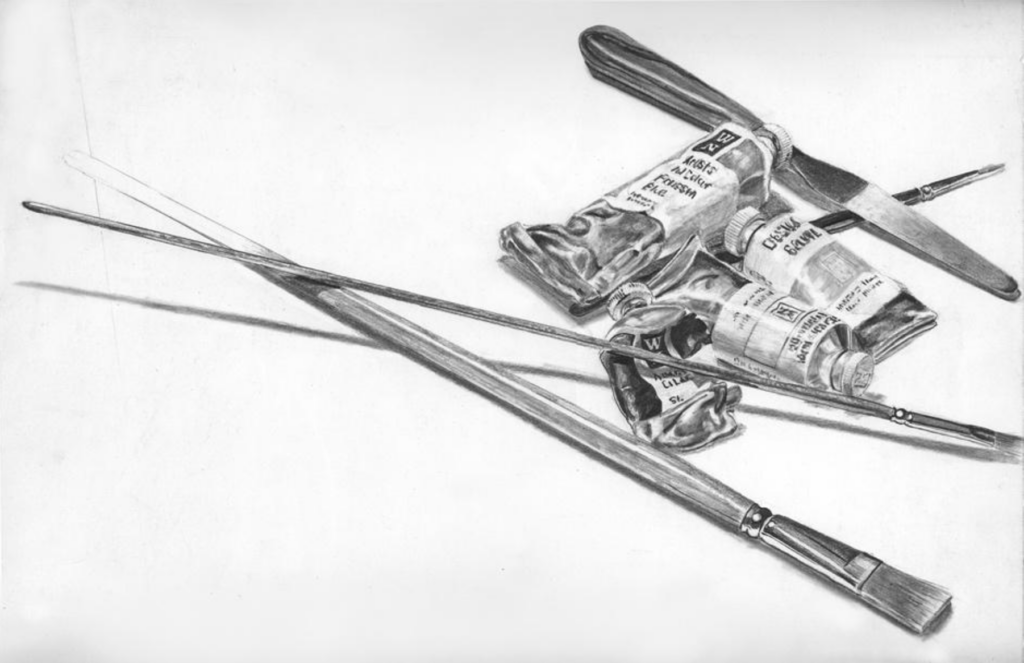
From my youth, of course, I learned how to use a pencil by rote practice, drawing hot rods and Frankenstein monsters over and over until my mother wanted to scream. But sometimes I drew animals and flowers and gradually got better at it.
I, of course, continued to draw and paint through my formative years, but not taking any art classes until high school.
I entered The Cooper Union after passing several entrance tests and was exposed to a great art education in Manhattan. I had the opportunity to try everything from life drawing to printmaking and sculpting clay and marble. Spoiler alert, marble is effing hard! Oddly, I did not take painting. I am self-taught and still learning from masters whom I admire.
Cooking classes taught me the value of planning my approach to the task at hand and setting out my materials methodically. My Chinese cooking showed me that contrast is an important aspect in creation. Chinese cuisine often contrasts textures, flavors and colors for the dishes. Likewise contrasts in one’s art can help enliven compositions that might be just so-so otherwise.
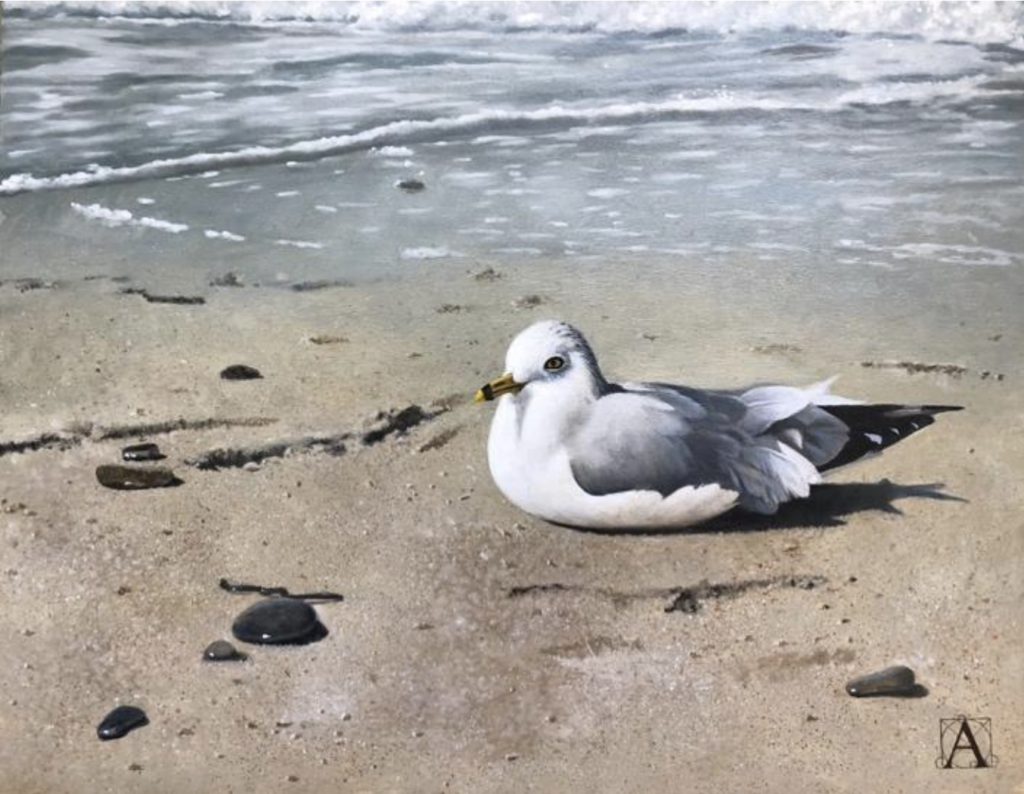
Oil on panel, 16” x 20”
Graphic design and illustration were instrumental in helping develop a sense for composition and to simplify a scene if it was distractingly busy. I also learned to stay with the design project I was working on and not dawdle or daydream when a deadline loomed. Perseverance is a trait that will hold one in good stead when creating one’s art.
I confess that as I have gotten older, I do have a tendency to lighten up on some days.
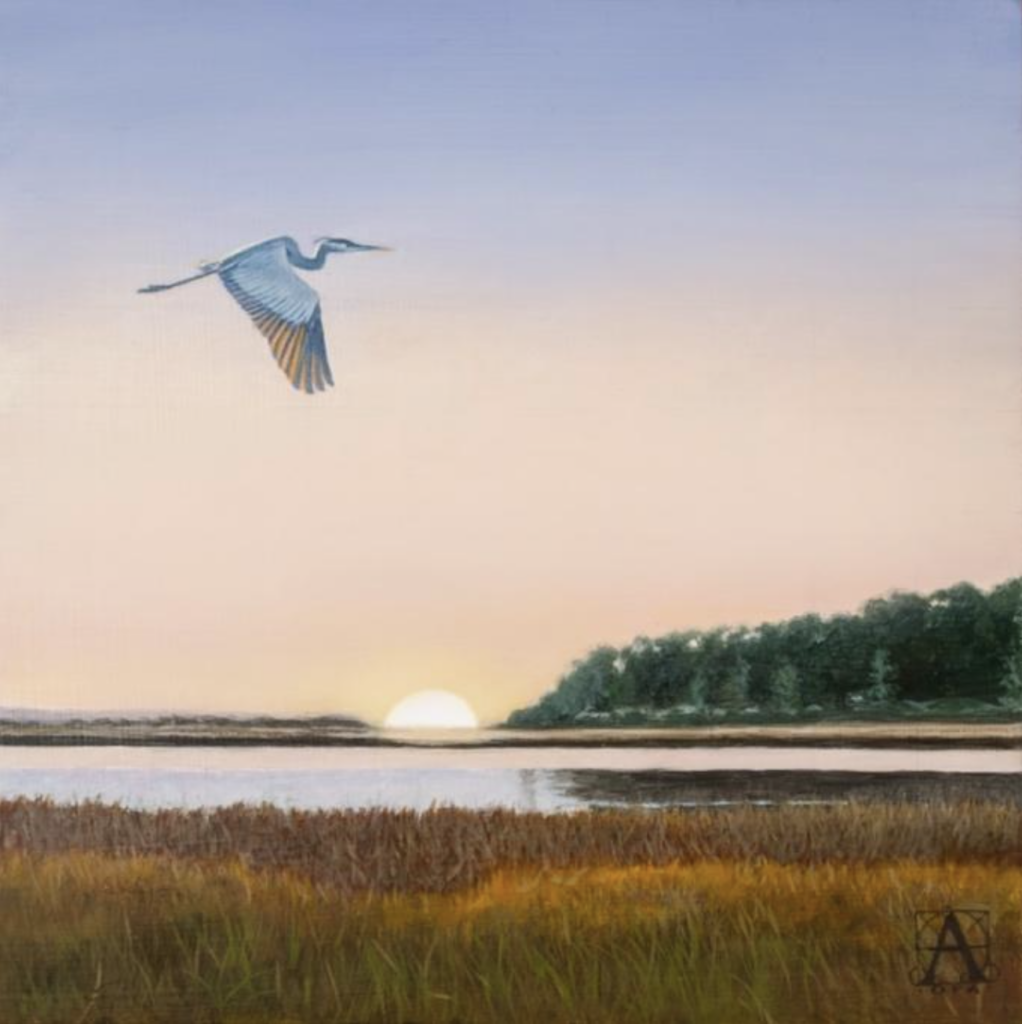
Oil on panel, 12” x 12”
In my martial arts training, which lasted a decade or so, I developed strong powers of focus and concentration so as not to be distracted by anything around me. I apply this focus in my painting.
My most important take away was a concept known in Japanese as Misu No Kokoro. This, usually translated as “mind like still water,” means to keep your mind like the surface of a calm lake or pond. If a small stone is thrown into said water, ripples form but quickly dissipate and become still again. In training we were taught that to meet an adversity in this state helps to overcome that adversity with clear thinking. Indeed, coming at a problem with a mind riled with chaos or rage is almost a guarantee for loss.
I try to use that focus and calm, clear mind in all of my daily life especially when painting and it really helps in creation of my pieces.
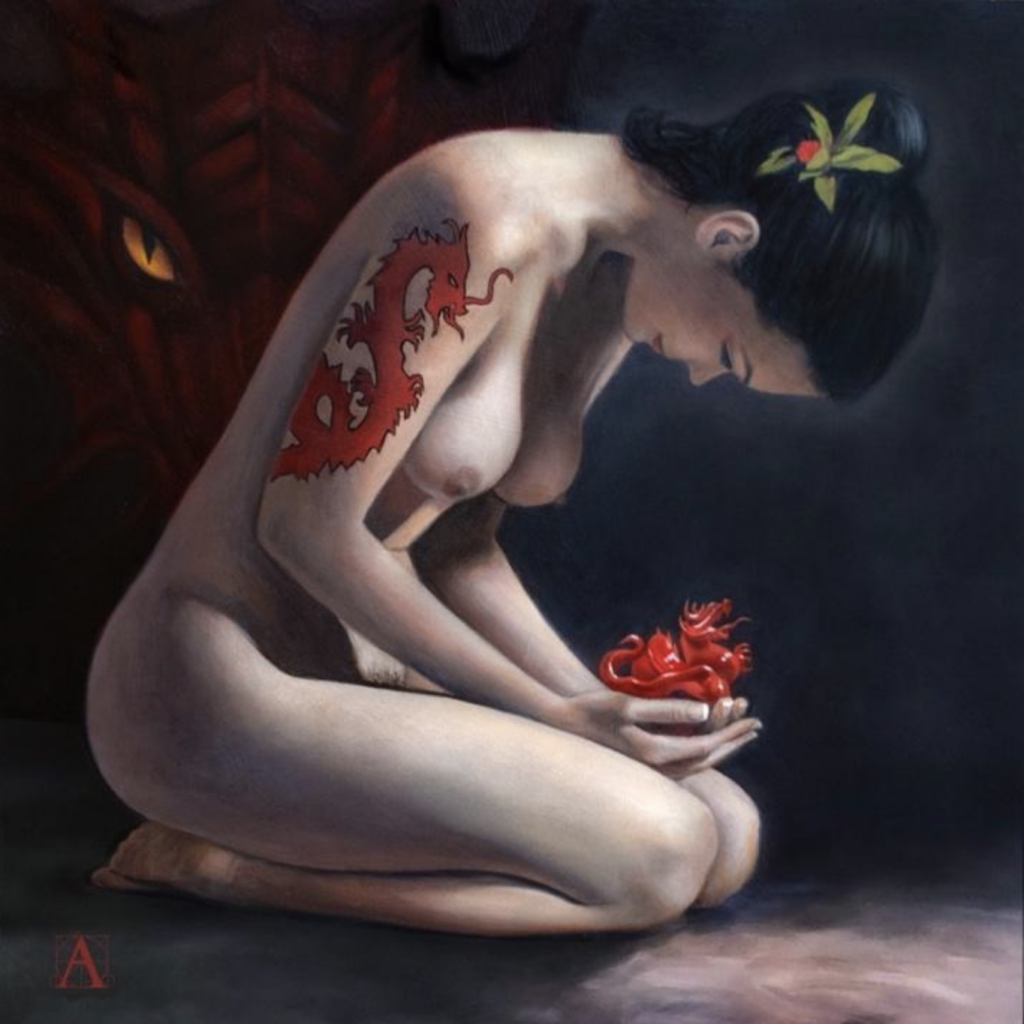
Oil on panel, 16” x 16”
I mentioned that I have been a rock drummer in various bands for 50+ years. I also play some guitar and use that instrument for writing music. Being a musician has helped me to think “outside of the box” in my artwork, not getting stuck doing one subject (Frankenstein monsters!) over and over again. In music, one can get too comfortable and that can lead to your tune becoming mundane. I believe the same thing can happen in my painting. One needs to stretch for something different to grow artistically.
This brings me back to my original idea that every experience in your life influences your thinking and how you approach the process of artistic creation.
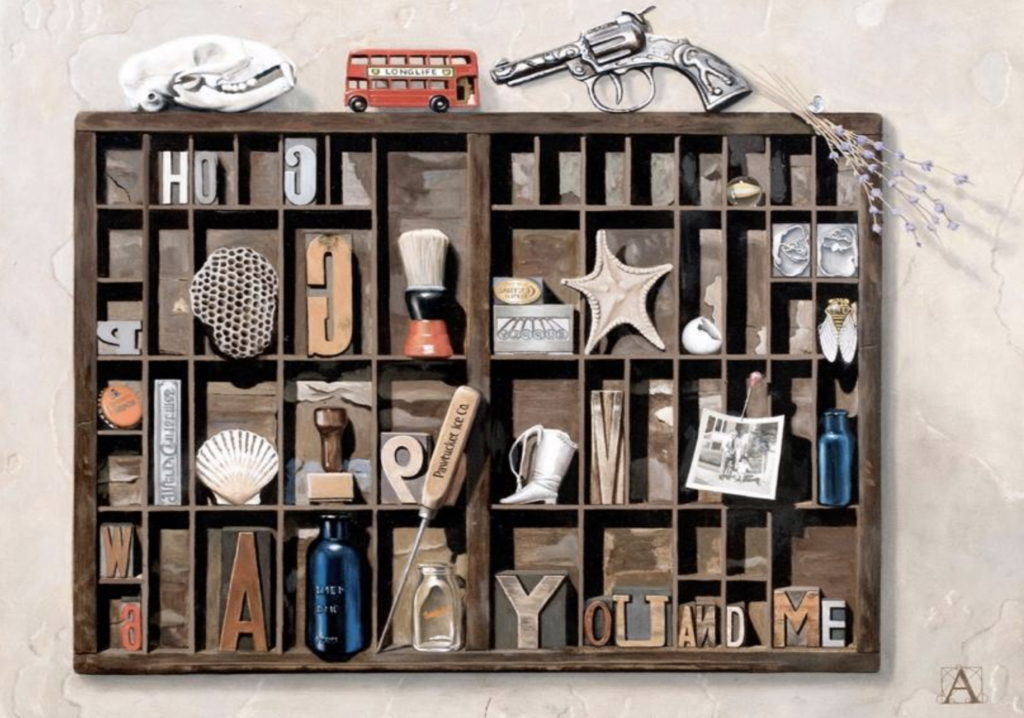
Oil on panel, 20” x 24”
I like to tell my friends that “no education is ever wasted”. All of your experiences in your life are educative in some way.
My point is that in your life and training as a fine artist, all that came before is in your make-up and is reflected in your artistic thinking and creation. You probably never give it a second thought… but it’s there.
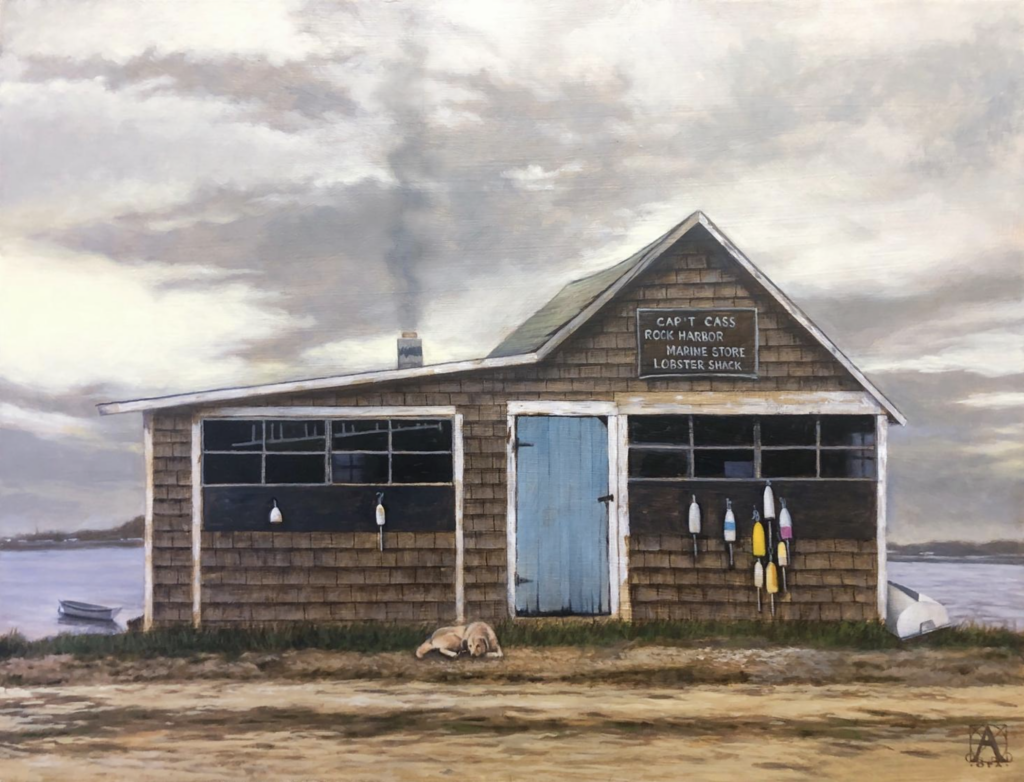
Oil on panel, 18” x 24”